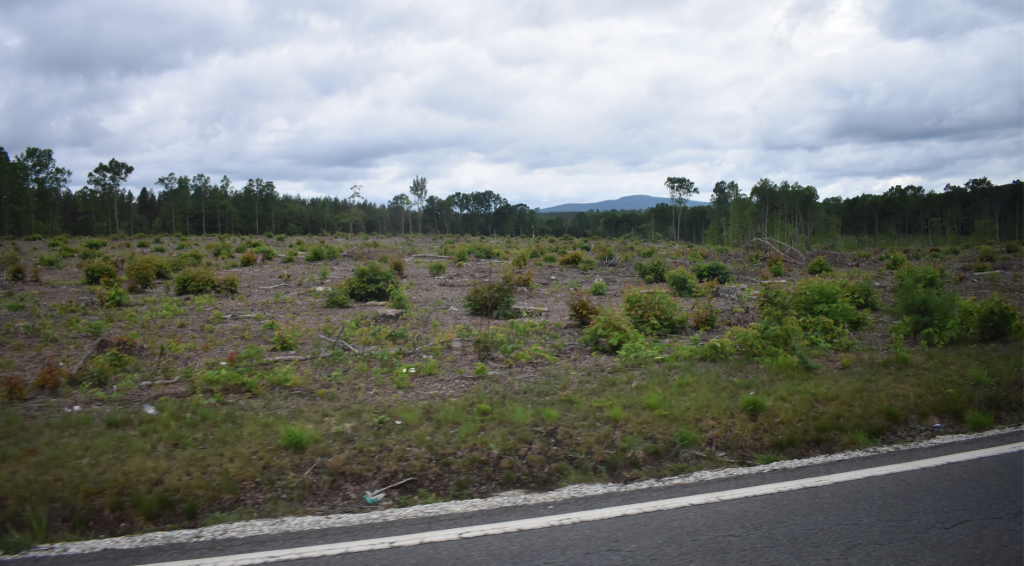Complaint about ACP, DEQ filed
Published 12:05 pm Tuesday, July 10, 2018

- Pictured is a stretch of land where a segment of the Atlantic Coast Pipeline (ACP) is set to be built on Route 56 in Buckingham. Various enviornmental organizations filed a Title VI civil rights complaint in relation to the Virginia Department of Environmental Quality’s (VADEQ) response to a environmental justice analysis for the ACP.
Organizations throughout Virginia, including those in Buckingham County, have submitted a Title VI civil rights complaint with the Environmental Protection Agency’s (EPA) office of External Civil Rights Compliance Office (ECRCO) in relation to the Virginia Department of Environmental Quality’s (VADEQ) response to a environmental justice analysis for the Atlantic Coast Pipeline (ACP).
A news release from The Blue Ridge Environmental Defense League (BREDL) cited that organizations participating in the complaint included BREDL and its Virginia chapters, Protect Our Water, Concern for the New Generation and No ACP.
The 26-page complaint, submitted with the release, alleges that the VADEQ’s decision to issue a request to the U.S. Army Corps of Engineers (ACE) to permit the ACP through its Nationwide Permit 12 for the 401 water quality certification without the agency completing an environmental justice analysis fails to take the population of the residents closest to the ACP activity into account.
Kathie Mosley, Buckingham resident and chair of Concern for the New Generation, said in the release that “We’ve been saying here in Buckingham all along we don’t matter. VADEQ has proven that statement true. It didn’t do its job to protect us. We look forward to a positive outcome from the EPA.”
The 53,783 horsepower compressor station for the ACP is expected to be built in the area of Route 56 in Buckingham County, between Shelton Store and Union Hill roads. The location of the station has been a subject of protest due to its close proximity to the Union Hill community, a historic African-American community.
Ann Regn with VADEQ said an environmental justice analysis was performed by the Federal Energy Regulatory Commission (FERC).
“The Federal Energy Regulatory Commission (FERC) completed the environmental justice (EJ) analysis for the Atlantic Coast Pipeline,” Regn said. “This analysis is a requirement of federal agencies under the National Environmental Policy Act (NEPA) as part of the environment impact analysis. The reviewing agencies, such as DEQ, comment on the laws under their jurisdiction. Virginia has no laws governing environmental justice at this time, and therefore relies on the federal analysis.”
The environmental justice analysis by FERC, in a document dated July 2017, determined that the proposed Compressor Station 2 in Buckingham County would be within a census tract that is designated a low-income environmental justice population, and that construction dust and compressor station emissions could increase symptoms of asthma.
The analysis cited that construction dust would be temporary and that compressor station emissions would not exceed federal guidelines. The analysis cited that there would not be disproportionately high and adverse impacts on environmental justice populations for Compressor Station 2.
Sharon Ponton with BREDL said the responsibility for agencies that receive funding from federal organizations, such as VADEQ, to perform environmental justice analysis falls under Title VI, which prohibits recipients of federal financial assistance, states, grantees, to discriminate based on race, color or national origin.
“The Virginia Department of Environmental Quality failed to complete an environmental justice analysis,” Ponton said. “This analysis is required to ensure communities of color and disadvantaged communities do not bear a disproportionate impact from the construction and operation of new energy infrastructure.”
Gregory Bilyeu with the VADEQ said the Office of Wetlands and Stream Protection receives federal grant funding “to support the continuing development of the wetland monitoring and assessment program.”
The program takes place between the VADEQ and the Virginia Institute of Marine Science (VIMS). Bilyeu cited that federal dollars are not used specifically for 401 certifications (including any Corps of Engineers nationwide permit) or for upland 401 certifications.
The Mountain Valley Pipeline, under construction to run through southwest Virginia, including Franklin, Giles, Montgomery, Pittsylvania and Roanoke counties, has temporarily suspended pipeline installation in Virginia, a VADEQ press release cited, “based on issues identified during inspections and complaint inspections.”
“To ensure proper soil erosion and sediment controls are implemented, MVP will direct crews to enhance and restore controls along the pipeline route,” the release cited.





